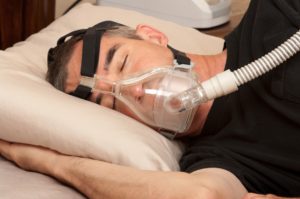
Obstructive sleep apnea (OSA) is a potentially serious sleep disorder that causes breathing to repeatedly stop and start during sleep. It occurs when the muscles in the back of the throat fail to keep the airway open, despite efforts to breathe.
It is estimated that OSA affects 22 million Americans. Studies show that some patients with OSA have an elevated risk of cardiovascular problems because of a medical episode known as “reverse dipping.” This phenomenon causes blood pressure to rise rather than lower during sleep, which is what most people experience during nighttime.
“We can now identify those with OSA at the highest risk of cardiovascular problems in order to prevent them from developing additional complications,” said David Gozal, MD, the Marie M. and Harry L. Smith Endowed Chair of Child Health at the MU School of Medicine. “We can treat those patients more aggressively to ensure they adhere to therapy and use their continuous positive airway pressure device (CPAP) properly.”
Cell Messages
For the study, blood samples were taken from 46 patients diagnosed with obstructive sleep apnea. Participants ranged in age from 18 to 70 years of age. The blood samples were studied to identify the messages that cells produce and how they send to each other through microscopic packages called exosomes. Fifteen participants were shown to have a rise in blood pressure during sleep, while the remaining 31 participants had blood pressure readings that either remained the same of declined at night.
“We found that the cell messages coming from participants with night-time elevated blood pressure were different than those transmitted in subjects with normal blood pressure,” Gozal said. “The altered messages caused the cells that line the blood vessels to become dysfunctional. Those disturbed vessels allowed inflammatory cells to enter the vessels’ walls, causing hardening of those vessels and leading to cardiovascular disease.”
Chronic snoring is a strong indicator of sleep apnea and should be evaluated by a health professional. Those with sleep apnea tend to be sleep-deprived and may suffer from sleeplessness and a wide range of other symptoms such as depression, irritability, difficulty concentrating, and sexual dysfunction.
Researchers hope that the study published in European Respiratory Journal, will help clinicians personalize treatment for patients with sleep problems. A simple blood test could help to indicate each patient’s cardiovascular risk when diagnosed with OSA and help lower the risk of related health problems.